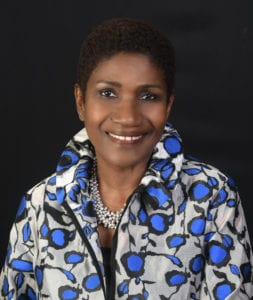|
Getting your Trinity Audio player ready...
|

We are more than a century and 200 miles removed from one of the most horrific acts of racial terror enacted in Florida and indeed, the country. On Election Day, November 2, 1920, only months after (some) women were granted the right to vote with the signing of the 19th amendment, the Black men of Ocoee, Florida insisted on their right to vote and found themselves suppressed by poll workers. They were run out of town with their property burned to the ground, or worse, lynched. The National Memorial For Peace and Justice in Montgomery, Alabama includes a monument for the Ocoee Massacre as one of 800 locations in the United States where 4400 Black people were lynched in between 1877-1950.
The sentiments underpinning the desire to suppress the African American vote in Florida then are familiar to us today. Florida was one of four states to prohibit felons who have served their sentences to vote until 2018 when a statewide referendum reversed this permanent disenfranchisement. Twenty-first century legislative maneuvering essentially created a poll tax, requiring those seeking their rights restored to pay all outstanding fines and court fees. These are very difficult to confirm with poor recordkeeping that did not anticipate a need for this information to be easily retrievable. Justice and opportunity remain structurally asymmetric for too many. And a global pandemic has laid bare the underlying inequalities that define the lived experience for too many Floridians.
This Tuesday we conclude an election and anticipate historic results in some races. I am seeking elected office on the Miami Dade County Board of Commissioners vacated by Chairwoman Audrey M. Edmonson. Since 1996 I have worked in county government and later as the executive director of a neighborhood-based non-profit organization serving thousands of vulnerable residents, working hand-in-hand with civic organizations, public and private agencies and institutions to address the needs and issues in the diverse community I seek to represent.
I am sincerely grateful to the grassroots organizations who have lent me their name by endorsing my campaign. The advocacy work they do across issues of gender equity, reproductive rights, environmental justice, broadening democracy, and representative equity is essential. These organizations and the one I lead form a robust civil society claiming a space for collective action around shared values to advance a broader equity agenda. On the eve of an election where I am on the ballot, I ask myself – if every eligible person voted, would government in Florida tilt towards human interest versus special interest? Would so many organizations be needed to fill the gaps that legislation and policy leave behind when priorities lie elsewhere?
As a person of color, a woman, an immigrant, and Miami-Dade resident, I call upon all of us to consider how our vote is our voice; I urge those who have not yet exercised it, to do so by Tuesday and to especially do so for those who do not yet enjoy that treasured right. I pray for a peaceful conclusion to this voting season and that those entrusted by the public to lead will dedicate themselves to the people they represent. The arc of the last century is indeed long and Floridians in my community will continue to bend it towards justice.
Gepsie Morisset-Metellus is co-founder and Executive Director of the Haitian Neighborhood Center Sant La, an award-winning neighborhood resource center that serves as a lifeline for the Haitian immigrant population of South Florida. Born in Port-au-Prince, Haiti, Gepsie immigrated to the United States at the age of twelve and has lived and worked in Miami since 1984.





